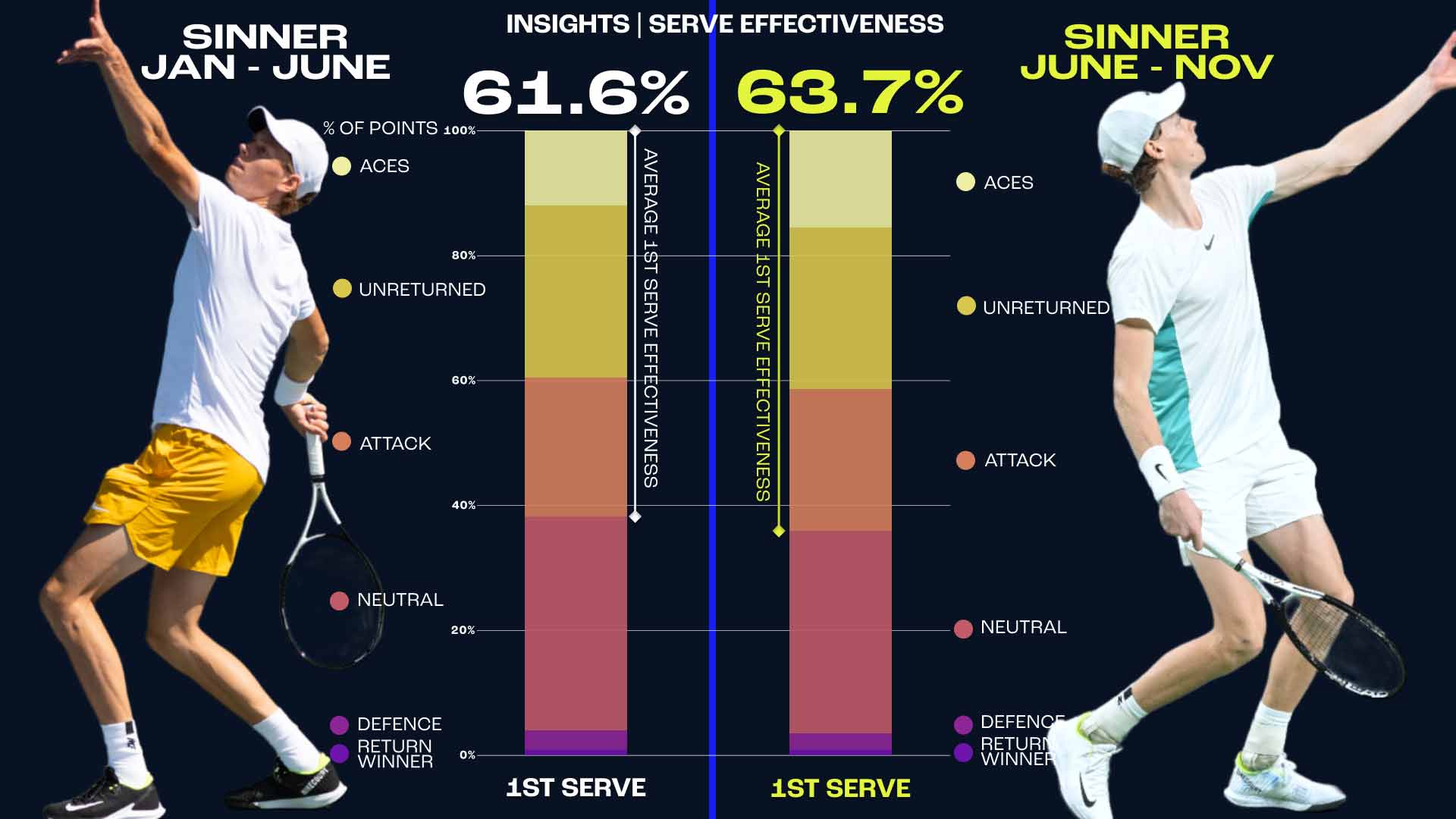Sinner’s Stance: A Defining Moment for Tennis’ Anti-Doping Fight?
Jannik Sinner’s recent comments on anti-doping in tennis have ignited a crucial conversation, prompting reactions from both fans and figures within the sport. Former World No. 7 Barbara Schett weighed in on the debate, highlighting the importance of Sinner’s stance and the complexities surrounding anti-doping measures.
The Italian star, currently ranked No. 8 in the world, expressed concerns about the frequency of testing, particularly during the off-season. Sinner, known for his rigorous training regimen and dedication to the sport, believes that more frequent testing during periods of active competition would be more effective.
“I get tested, I think, every two months, which is good, it’s fine,” Sinner stated in a recent interview. “But I think the best [solution] is to do it maybe in the tournament, because out of the tournament, I understand that they have to do it, but it’s strange.”
Sinner’s comments touch upon a sensitive yet crucial aspect of professional tennis: maintaining a level playing field while respecting athletes’ privacy and logistical considerations.
Schett: Sinner’s Voice Adds Weight to the Discussion
Barbara Schett, a respected voice in the tennis world, acknowledged the significance of Sinner’s comments, particularly given his rising star status.
“I think it’s good that he’s addressing it, especially him being one of the top players,” Schett remarked. “He’s such a great role model for all the youngsters out there. It’s great to hear him say these words because it’s important to talk about it.”
Schett’s statement underscores the influence that prominent athletes like Sinner have in shaping the narrative around anti-doping. By voicing his perspective, Sinner encourages open dialogue and potentially influences policy changes within the sport.

Navigating the Complexities of Anti-Doping Measures
The debate surrounding anti-doping in tennis is multifaceted, involving factors such as athlete privacy, logistical challenges, and the effectiveness of current testing procedures.
The International Tennis Federation (ITF), the governing body responsible for anti-doping efforts in tennis, adheres to the World Anti-Doping Agency (WADA) code. This code outlines comprehensive testing protocols and sanctions for violations. However, the implementation of these protocols, particularly the frequency and timing of tests, remains a subject of ongoing discussion.

Balancing Act: Athlete Privacy vs. Effective Testing
One of the primary challenges lies in striking a balance between respecting athletes’ privacy and ensuring robust testing procedures. While out-of-competition testing is crucial for catching potential doping violations, it can be disruptive for athletes during their downtime.
Sinner’s suggestion to focus testing during tournaments, when athletes are already subject to scrutiny and logistical arrangements are in place, presents a pragmatic approach. This approach could potentially increase the efficiency of testing while minimizing disruption to athletes’ personal schedules.

The Simona Halep Case: A Stark Reminder
The ongoing case of Simona Halep, a two-time Grand Slam champion currently serving a provisional suspension for a positive doping test, serves as a stark reminder of the complexities surrounding anti-doping in tennis. Halep has maintained her innocence, claiming that the positive test resulted from contaminated supplements.
Her case highlights the importance of thorough investigations, due process, and the need for clear communication between athletes, governing bodies, and the public.

Transparency and Education: Key Pillars for a Clean Sport
As the debate surrounding anti-doping in tennis continues, transparency and education emerge as crucial pillars for fostering a clean and fair sport.
Transparency from Governing Bodies: The ITF and other tennis governing bodies must prioritize transparent communication regarding testing procedures, results, and any policy changes. This transparency builds trust with athletes and the public, demonstrating a commitment to upholding the integrity of the sport.
Athlete Education and Support: Educating athletes about anti-doping rules, the dangers of prohibited substances, and their rights and responsibilities is paramount. Providing resources and support systems for athletes to make informed decisions regarding supplements and medications can help prevent unintentional violations.
High-Trust External Resources:
- World Anti-Doping Agency (WADA): https://www.wada-ama.org/
- International Tennis Federation (ITF): https://www.itftennis.com/
- United States Anti-Doping Agency (USADA): https://www.usada.org/
Jannik Sinner’s willingness to speak out about anti-doping in tennis has sparked a vital conversation. By addressing the complexities and advocating for more effective testing strategies, Sinner’s voice contributes to the ongoing pursuit of a level playing field and the preservation of tennis’ integrity. As the sport navigates these challenges, transparency, education, and a commitment to fairness will be paramount in ensuring a clean and competitive future for tennis.









Post Comment